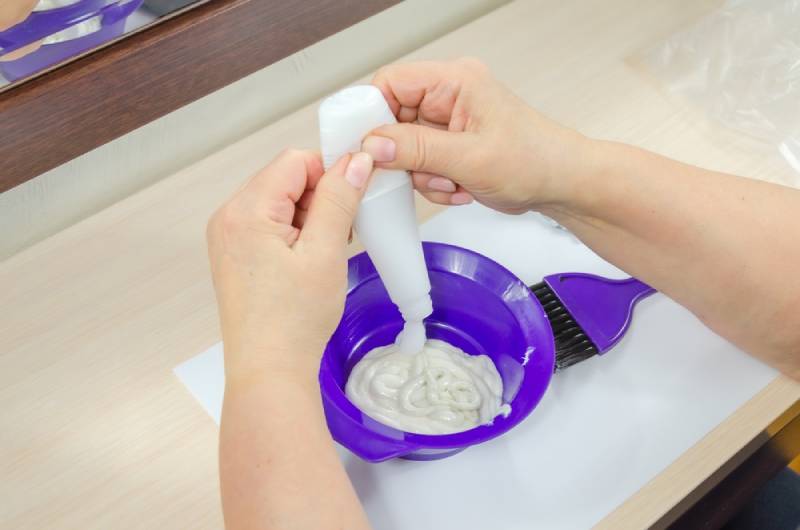If you’ve been online and pictures of cats with dyed coats have crossed your path, you may be wondering how the process works, what it involves, and whether it may be something to consider doing with your companion.
In theory and practice, cat fur can be dyed using products formulated to be safe for pets. However, we strongly advise against dyeing your cats’ fur and do not advocate any methods of doing so.
Even the gentlest products for humans are too harsh for cats, and many contain chemicals that are toxic to pets, such as ammonia and hydrogen peroxide. There are commercial coloring shampoos and semi-permanent dyes that are marketed for use in cats, but ask yourself, why?
While it’s possible to dye cats’ fur, the practice isn’t without some controversy, as it’s considered unethical by some animal welfare groups. It’s also currently illegal in some parts of the United States, such as Florida and South Carolina.
Why Do Some People Oppose Dyeing Cats’ Fur?
Some people view dyeing pets’ fur as essentially using animals as toys or accessories for human entertainment. Others point to the potential for cats to sustain serious injuries, such as burns, if their pet parent uses the wrong product, leading many to suggest staying away from the practice entirely since the risk is too high to justify it. Human dyes can cause burns and can lead to cats becoming sick if ingested.
The amount of bathing required to remove the coloring is another concern. Removing hair dye requires bathing with shampoo. Semi-permanent dyes often require six or more baths to completely come out, which is too much for most cats to tolerate. Your cat’s skin can become dry and irritated due to frequent bathing. Cats who dislike bathing may find the entire process entirely too stressful to manage.

How to Encourage Healthy Skin
There are a few easy ways to keep cats’ fur looking great, including proper diet and solid parasite prevention.
1. Food
Feeding cats high-quality pet food with nutrients such as omega-3 and 6 fatty acids is essential for optimal skin and coat health. Omega-3 fatty acids also help when it comes to keeping inflammation at bay. High-quality commercial products with the range of nutrients recommended by the American Association of Feed Control Officials (AAFCO) have everything cats need to maintain healthy coats. There are also products on the market formulated to provide extra skin and coat support.
2. Parasite Prevention
Itchy skin is a relatively common problem in cats. While it can be caused by various things, from allergies to infections, fleas, ticks, and other parasites are responsible for the problem more often. Ensuring that cats are protected from parasites is vital for outdoor and indoor cats. Parasite control products for dogs can be toxic to cats, and it’s always important to obtain veterinary advice before using any over-the-counter preventative product.
3. Grooming
Cats benefit from regular grooming to ensure their fur stays in top shape. Brushing helps ensure their natural skin oils are evenly distributed, which can help keep their coats nice and shiny. Brushing long-haired cats every day or so can help keep tangles and mats under control.
Shorthaired cats generally need less frequent grooming, but many enjoy being brushed. Cats must also have their teeth brushed a few times every week, and their claws must be trimmed every few weeks or so.
4. Reduce Stress
Cats are known for being easily stressed by changes. They’re creatures of habit that need time to adjust to new environments and people. Signs of stress include using the bathroom in inappropriate places, stomach problems, withdrawal, lots of vocalizing, and excessive licking and scratching, which can lead to injuries in some pets.
Taking steps to minimize cats’ stress can go a long way toward ensuring they stay happy and healthy and have nice coats and healthy skin. Providing toys, exercise, high places to hang out, and plenty of playtime can help with stress management.

FAQ
Can Cats Use Human Shampoo and Conditioner?
No. Shampoos and conditioners made for humans are never okay for cats since they can strip their skin-nourishing natural oils and cause irritation.
How Often Do Cats Need to Be Bathed?
Healthy adult cats generally don’t need much help when it comes to keeping themselves and their fur squeaky clean. Hairless cats, pets with long fur, older kitties, and those who are carrying a bit of extra weight can however benefit from extra grooming help. Hairless cats need to be bathed weekly, but cats with long or short coats don’t need baths unless they get dirty playing outside.
Conclusion
Human hair care products, including dyes, should never be used on cats since they’re too strong and frequently contain chemicals that can damage their skin and make them ill if ingested. While it may be possible to dye cats’ fur with other products marketed for pets, it’s not recommended. Many animal welfare organizations see it as problematic since it has no benefit for the cat and can be harmful in certain circumstances.
Featured Image Credit: New Africa, Shutterstock
Credit : Source Post




